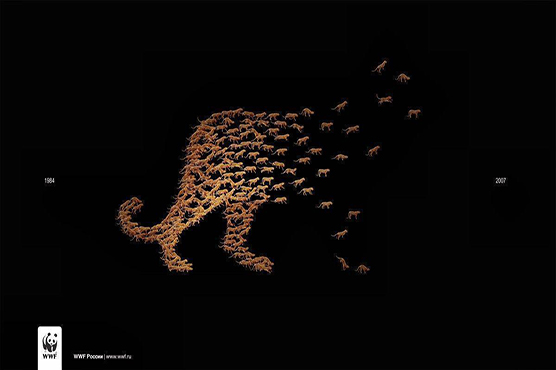WWF sounds alarm on loss of biodiversity ahead of U.N. report

It comes amid warnings of a decline which could threaten economies and livelihoods across the world.
PARIS (Reuters) - Volunteers from the World Wildlife Fund (WWF) staged a demonstration in Paris on Saturday (May 4) to raise awareness on the extent of the loss of biodiversity due to human activities, ahead of the publication of a report by the Intergovernmental Platform on Biodiversity and Ecosystem Services (IPBES).
The bombshell executive summary of a 1,800-page tome crafted by more than 400 experts -- the first UN global assessment of the natural world in 15 years -- will be unveiled Monday.
Demonstrators dressed as bees fell to the ground on a square near the Centre Pompidou while others held signs saying "Pesticides kill biodiversity" or "Plastic pollution kills biodiversity".
The report, compiled over three years by 150 experts looking into the extent of the biodiversity loss, will be finalized and presented on Monday (May 6) at a conference in Paris attended by representatives of 130 governments.
The report is likely to reveal that up to one million of Earth’s estimated eight million species face extinction, many within decades.
Many scientists have concluded that the planet has already entered a period of so-called "mass extinction," the first since the demise of non-avian dinosaurs 66 million years ago, and only the sixth in half-a-billion years.
The draft reports also details the ways in which humanity’s growing footprint and appetites have deeply compromised Earth’s capacity to renew resources upon which civilisation depends, beginning with fresh water, breathable air, productive soil and the natural pollination of food crops.
"The evidence is incontestable," Robert Watson, chair of the chair of the Intergovernmental Science-Policy Platform on Biodiversity and Ecosystem Services (IPBES), told delegates as the meeting got underway.
"Our destruction of biodiversity and ecosystem services has reached levels that threaten our well-being at least as much as human-induced climate change."
The heavily negotiated text does not make explicit policy recommendations, but will serve "as a basis for redefining our objectives" ahead of a key meeting of the UN Convention on Biological Diversity in China next Fall, said co-author Yunne Jai Shin, a researcher at the Research Institute for Development in Marseilles.
It comes amid warnings of a decline which could threaten economies and livelihoods across the world.
The last such report was published in 2005, although the latest version is believed to be the first intergovernmental assessment drawing on scientific papers and government information as well as indigenous and local knowledge.

